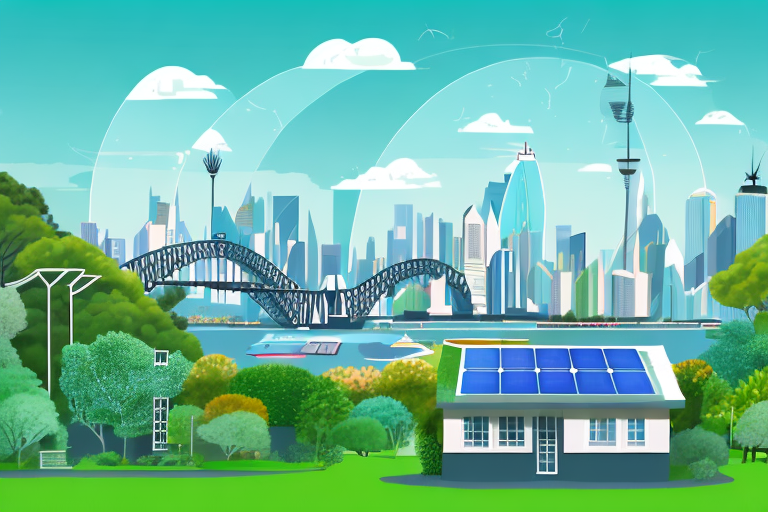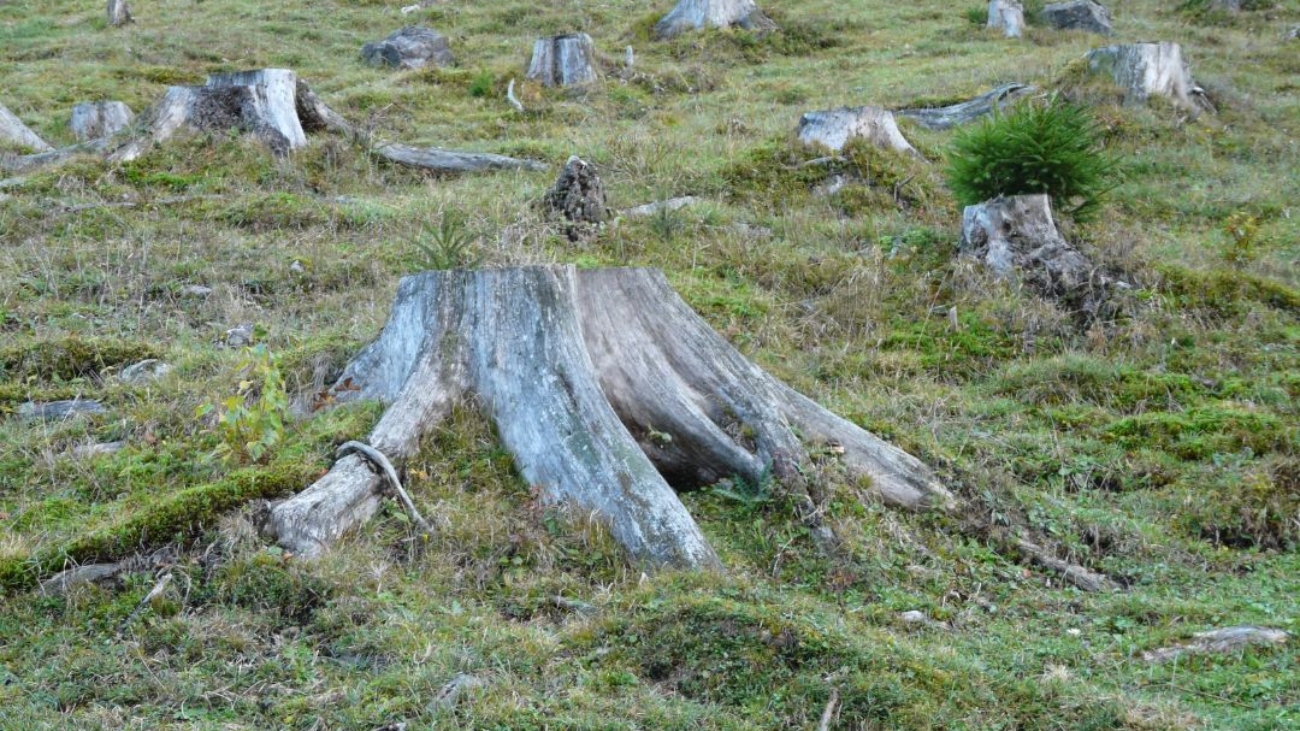In today’s world, more and more homeowners are becoming aware of the importance of taking care of the environment. As a result, many are seeking eco-friendly solutions for waste removal, particularly when it comes to green waste. Green waste refers to organic waste such as grass clippings, leaves, branches, and other garden debris. Properly disposing of green waste is crucial not only for maintaining the beauty of our surroundings but also for minimizing the carbon footprint and promoting a more sustainable lifestyle. If you are a homeowner in Sydney looking for ways to remove green waste responsibly, this guide is for you.
Understanding Green Waste: What it is and Why it Matters
First and foremost, let’s delve into what green waste actually is and why it matters. Green waste comprises biodegradable materials derived from plants, which can include leaves, grass, trees, plants, flowers, and more. When left unattended, green waste can have a negative environmental impact, contributing to greenhouse gas emissions and increasing landfill waste. By properly managing and disposing of green waste, homeowners can significantly reduce their ecological footprint and contribute to a healthier, more sustainable environment.
But what exactly happens to green waste when it ends up in landfills? The answer lies in the decomposition process. When green waste decomposes without access to oxygen, it releases methane gas, a potent greenhouse gas. Methane has a much higher global warming potential than carbon dioxide, making it a significant contributor to climate change. This means that the improper disposal of green waste can have far-reaching consequences for our planet.
However, the environmental impact of green waste doesn’t stop there. Improper disposal can also result in the contamination of soil and water sources. When green waste breaks down in landfills, it can leach harmful substances into the surrounding soil, affecting its quality and potentially harming plants and wildlife. Moreover, when rainwater comes into contact with decomposing green waste, it can carry pollutants into nearby water sources, posing a threat to aquatic ecosystems.
So, what can homeowners do to mitigate these environmental concerns? One effective solution is to properly manage green waste through recycling or composting. By separating green waste from general waste and diverting it to recycling or composting facilities, homeowners can ensure that these materials are put to good use rather than being left to decompose in landfills. Recycling green waste allows it to be transformed into useful products such as mulch or organic fertilizers while composting turns it into nutrient-rich soil amendments.

The Environmental Impact of Green Waste
When green waste ends up in landfills, it decomposes without access to oxygen, leading to the release of methane gas, a potent greenhouse gas. Methane has a much higher global warming potential than carbon dioxide, making it a significant contributor to climate change. Additionally, improper disposal of green waste can also result in the contamination of soil and water sources. By taking steps to manage green waste properly, such as recycling or composting, homeowners can play a crucial role in mitigating these environmental concerns.
Furthermore, the environmental impact of green waste extends beyond greenhouse gas emissions and contamination. The improper disposal of green waste can also contribute to the loss of biodiversity. When green waste is not managed properly, it can create an environment that favors the growth of invasive species, which can outcompete native plants and disrupt natural ecosystems. By responsibly handling green waste, homeowners can help preserve biodiversity and protect the delicate balance of our natural habitats.
Types of Green Waste in Your Home
Every homeowner generates some form of green waste, whether through regular gardening activities or landscaping projects. Understanding the different types of green waste can help you better identify how to handle them responsibly. Common types of green waste include grass clippings, leaves, mulch, tree branches, prunings, weeds, and plant trimmings. By separating these materials from general waste and implementing proper removal methods, you can make a significant difference in reducing your environmental impact.
Grass clippings, for example, are a common type of green waste that can be recycled or composted. Instead of throwing them away, consider using them as mulch in your garden beds or adding them to your compost pile. This not only helps reduce landfill waste but also provides valuable nutrients to your plants, promoting healthy growth.
Similarly, leaves can be transformed into nutrient-rich leaf mold through composting. By creating a separate compost pile for leaves, you can harness their natural decomposition process to produce a valuable soil amendment. This leaf mold can then be used to enrich your garden soil or as a protective mulch layer around your plants.
Tree branches, prunings, and plant trimmings can also be recycled or chipped into mulch. Many municipalities offer green waste recycling programs or have designated drop-off locations where you can dispose of these materials responsibly. By taking advantage of these services, you can ensure that these woody materials are diverted from landfills and put to good use.
By understanding the types of green waste generated in your home and implementing proper disposal methods, you can actively contribute to a more sustainable future. Remember, every small step counts when it comes to reducing our environmental impact and preserving the beauty of our planet.
Green Waste Collection in Sydney: What You Need to Know
Now that you have a better understanding of green waste and its environmental impact, let’s explore how you can dispose of it responsibly in Sydney.
When it comes to green waste disposal, Sydney offers various options to ensure that your organic waste is managed efficiently and sustainably. From regular collection services to special arrangements for larger quantities, there are solutions available to meet your specific needs.
Regular Collection Services for Green Waste
In Sydney, many local councils offer regular collection services for green waste. These programs aim to make it convenient for homeowners to dispose of their organic waste while promoting recycling and composting. By contacting your local council and enrolling in these services, you can ensure that your green waste is disposed of properly and sent for recycling or composting.
Regular collection services usually involve providing homeowners with dedicated bins for green waste, which are collected on specified days. This ensures that the waste is segregated from other types of rubbish and can be processed separately. The collected green waste is then taken to recycling or composting facilities, where it is transformed into valuable resources such as mulch or compost.
By participating in regular collection services, you not only contribute to the reduction of landfill waste but also support the creation of sustainable products that can be used to enrich soil and promote healthy plant growth.
Special Collection Services for Large Green Waste
Sometimes, regular collection services may not be sufficient for handling larger amounts of green waste. In such cases, special collection services are available for homeowners. These services are particularly useful when you have undertaken significant landscaping or gardening projects, resulting in a surplus of green waste.
If you find yourself with a substantial volume of green waste that cannot be accommodated in your regular bins, you can explore alternative options. Green Waste Removal Company or your local council can assist you in arranging for a one-time collection or provide skip bins to handle larger quantities of green waste efficiently.
Special collection services ensure that even large amounts of green waste are managed responsibly. The waste is collected and transported to appropriate facilities where it can be processed effectively. By opting for these services, you can avoid the hassle of dealing with excessive organic waste on your own and ensure that it is disposed of in an environmentally friendly manner.
Furthermore, by utilizing special collection services, you contribute to the overall sustainability of waste management practices in Sydney. These services help divert significant amounts of green waste from landfills, reducing the environmental impact and promoting a circular economy.
Whether you choose regular collection services or opt for special arrangements, the key is to be proactive in managing your green waste. By taking advantage of the available services, you can play an active role in preserving the environment and contributing to a greener Sydney.
Composting at Home: Turning Green Waste into Gold
Aside from relying solely on collection services, homeowners can take matters into their own hands by composting their green waste at home.
Basics of Home Composting
Composting is a natural process that transforms organic waste into nutrient-rich compost, which can then be used to nourish plants and improve soil quality. To start composting at home, you need a compost bin or pile, which allows the waste materials to break down over time. For successful composting, it’s important to balance the ingredients properly, comprising a mix of green waste (such as grass clippings and plant trimmings) and brown waste (such as dry leaves and twigs). By maintaining the right moisture levels and regularly turning the compost pile, you can accelerate the decomposition process and generate rich compost for your garden.
Benefits of Composting for Your Garden and Environment
Composting not only helps in reducing the amount of green waste that ends up in landfills but also offers several benefits for your garden and overall environment. Compost enriches the soil with essential nutrients, improves soil structure, retains moisture, and promotes healthy plant growth. By using compost in your garden, you reduce the need for chemical fertilizers, conserve water, and reduce greenhouse gas emissions associated with the production and transportation of commercial fertilizers. Composting offers a sustainable way to recycle green waste and create a thriving garden ecosystem.
Recycling Green Waste: How and Where
In addition to composting, recycling green waste is another effective way to manage it responsibly.
Green Waste Recycling Facilities in Sydney
Sydney has several recycling facilities that specialize in processing green waste. These facilities accept green waste from both homeowners and commercial entities and process it into useful products like mulch and compost. By delivering your green waste to these facilities, you ensure that it is recycled and given a new life rather than ending up in landfills.
How to Prepare Your Green Waste for Recycling
Prior to recycling your green waste, it’s essential to prepare it properly. Start by removing any non-organic materials such as plastic bags, metal, or glass. Next, separate your green waste into different categories like grass clippings, leaves, and branches. If needed, use a chipper or shredder to break down larger branches into smaller pieces, making them more manageable for recycling. By following these simple steps, you can ensure that your green waste is ready for recycling and can be processed efficiently.
Reducing Green Waste: Tips for Eco-Conscious Homeowners
While recycling and composting are valuable waste management strategies, reducing green waste generation should always be the top priority.
Smart Shopping to Minimize Green Waste
One of the most effective ways to reduce green waste is by making smart choices during your shopping trips. Opt for products with minimal packaging and avoid single-use items whenever possible. Purchase fruits and vegetables from local farmers’ markets, where they are often sold loose without excessive packaging. By being mindful of your choices as a consumer, you can significantly minimize the amount of green waste generated in your household.
Reusing and Repurposing Green Waste at Home
Another way to reduce green waste is by finding creative ways to reuse or repurpose it at home. For example, fallen leaves can be used as mulch or added to compost piles. Wood chips from trimmed branches can be used for landscaping or as a decorative element in your garden. By finding new purposes for green waste, you can divert it from landfills and make the most out of its potential.
By following these guidelines and adopting eco-conscious practices, you can become a responsible homeowner in Sydney and contribute to a greener, more sustainable future. Properly managing green waste is a small yet significant step towards preserving our environment for future generations.
